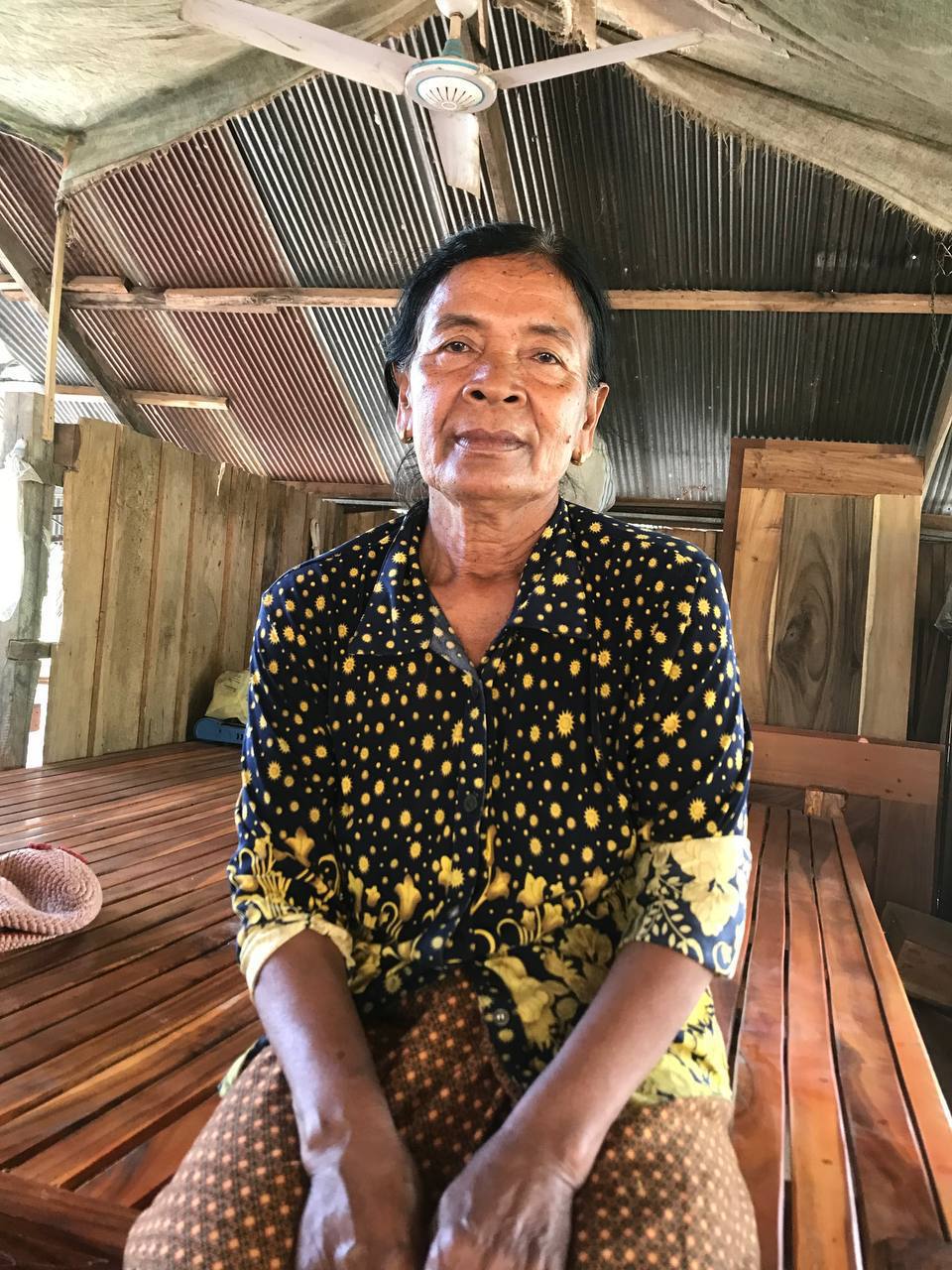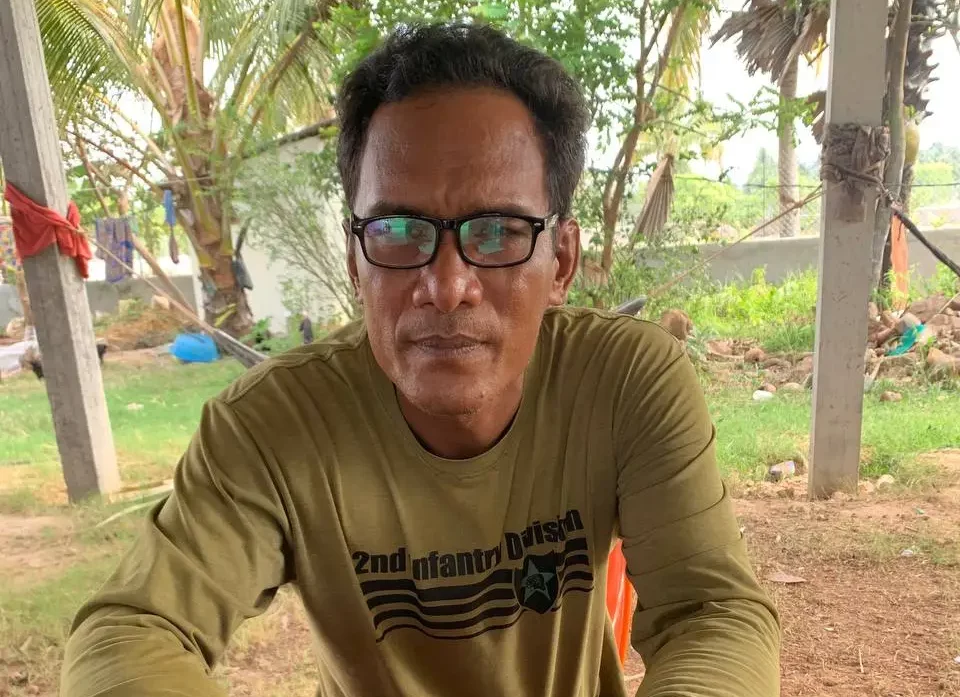We walked toward a wooden house, where an old woman greeted me with a warm smile. She was one of the few survivors of the Khmer Rouge regime in the area. She invited us inside and offered us refreshments. She said she was willing to tell us her story, even though it was painful to remember. We thanked her for her generosity and willingness to share her story. We prepared our notebooks, camera and recording equipment. She asked me to sit next to her on the wooden bed and she began to recount her experiences.
Her name is Prak Sokhom. She is 64 years old, and she is a farmer. When she was younger, she wasn’t able to study. After the liberation of Cambodia from French colonial rule, she started learning a bit such that she could read and write some words. During the Khmer Rouge regime, she was assigned to be a member of a mobile unit and she dug canals for as long as she could remember. She was also assigned to carry cow dung and cut down Chromolaena odorata (a type of subtropical shrub) to make fertilizer. She doesn’t remember much, so this is all she could say. I got up and embraced the survivor, feeling a surge of gratitude and respect. I expressed my appreciation for her courage and honesty, and for allowing my team and I to document her story. I told her that she was a bright person who had survived unimaginable horrors and yet she still had faith and kindness. She said that she hoped her story would educate others about the atrocities of the Khmer Rouge and prevent such crimes from happening again. I nodded and thanked her for her hospitality and permission to interview her.


